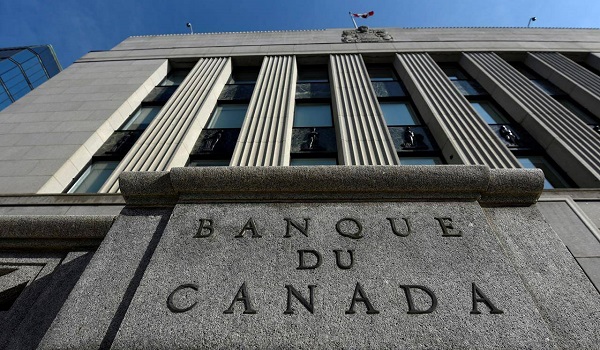Despite most economists expecting a 50 basis points rate cut from BoC, some are against the move
Economists are largely anticipating the Bank of Canada to cut its policy interest rate by 50 basis points on Wednesday, but some are advising against the move.
According to a Bloomberg survey of economists, the central bank is expected to lower the policy rate to 3.25 per cent in its last meeting of 2024 from 3.75 in October. If that turns out to be the case, it will have slashed the rate by 175 basis points in six months.
While many experts support a larger cut saying interest rates are higher than they need to be, others argue that the bank should take a more restrictive approach and reduce the rate by 25 basis points as the threat of inflation and a weaker Canadian dollar looms in 2025.
There have been signs of weakness in the economy since the October announcement that justify a large cut.
Unemployment ticked up to 6.8 per cent in November, its highest level since January 2017, excluding the pandemic. Meanwhile, per-person gross domestic product declined for a sixth consecutive quarter.
And while inflation rose to two per cent in October from 1.6 per cent the month prior, it’s still in line with the bank’s target.
“Interest rate cuts so far have been the equivalent of the Bank of Canada easing off the economy’s brakes rather than stepping on the gas,” wrote RBC economists Nathan Janzen and Abbey Xu in a report.
But a creeping rebound in the housing market is fueling inflation concerns, which, some say, should not be overlooked.
Home sales have already picked up in recent months despite fewer new listings, while the federal government is relaxing mortgage rules in December, putting further pressure on prices.
“Arguably, housing has achieved a reasonably soft landing, and there’s no need to risk sparking exuberance with more aggressive rate cuts,” said BMO’s Benjamin Reitzes.
In a recent interview with the Star, senior deputy governor Carolyn Rogers said the risk of increasing pressure on the housing market is “one we’ll watch,” but rate cuts will continue as long as the economy progresses as expected.
And U.S. president-elect Donald Trump’s pledge to implement 25 per cent tariffs on Canadian goods might lead to retaliatory tariffs that would drive imported prices higher. Some Canadian politicians, including Ontario Premier Doug Ford, are already exploring that idea.
“I have to admit that I’m not entirely sold on the idea of cutting 50 basis points at this meeting,” said Scotiabank’s Derek Holt.
“While the Bank of Canada publicly says they don’t act upon possibilities like tariffs until they become fact and incorporated into their outlook, they may wish to take out some insurance against the disinflationary effects,” he said.
“If the Bank of Canada thinks Canada may retaliate, then they wouldn’t want to do this because the higher tariffs would stoke more imported inflation at least for a time.”
Another concern of an aggressive rate cut on Wednesday is the growing weakness of the loonie versus the dollar as the U.S. economic outlook has been stronger relative to Canada’s. The higher the central bank interest rate, the more worthwhile it is to hold that country’s currency.
“The sharp increase in the unemployment rate is likely enough to drive a second consecutive 50 basis point cut from the Bank of Canada,” said BMO’s Reitzes.
“Despite that expectation, the risks to the Canadian dollar and housing from such a move should be considered and point to a more cautious path in 2025.”
This article was first reported by The Star













